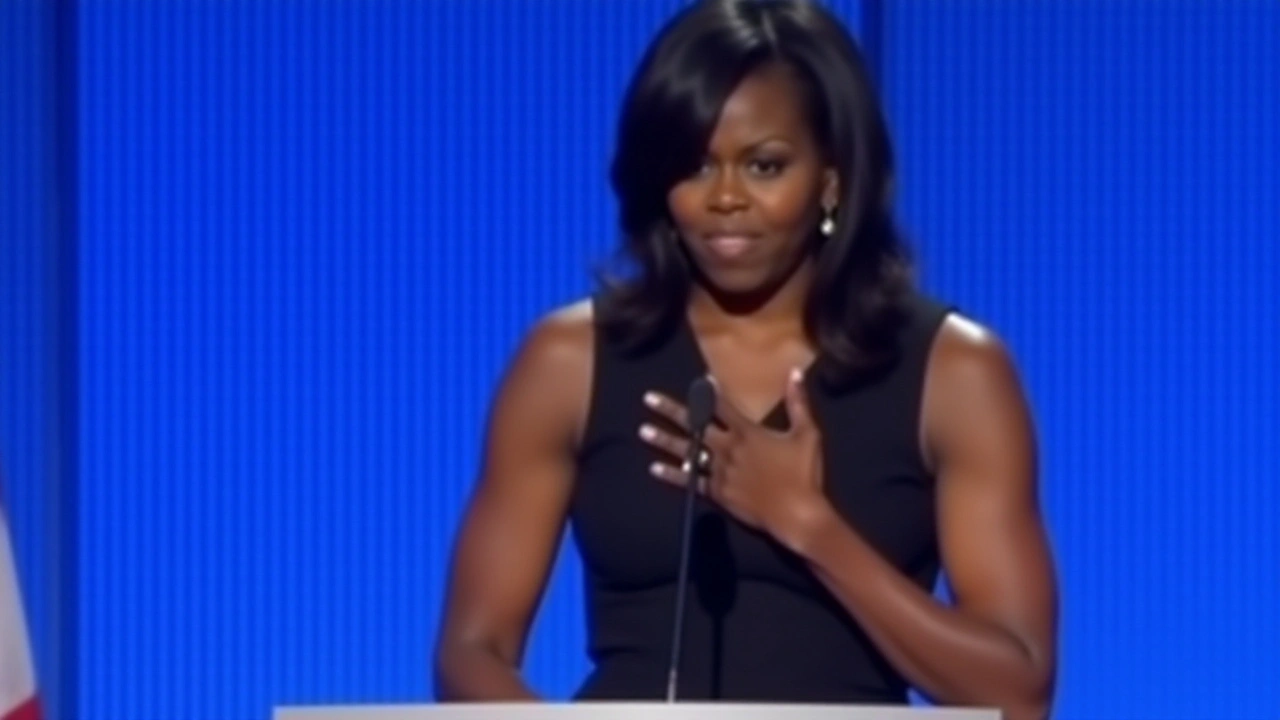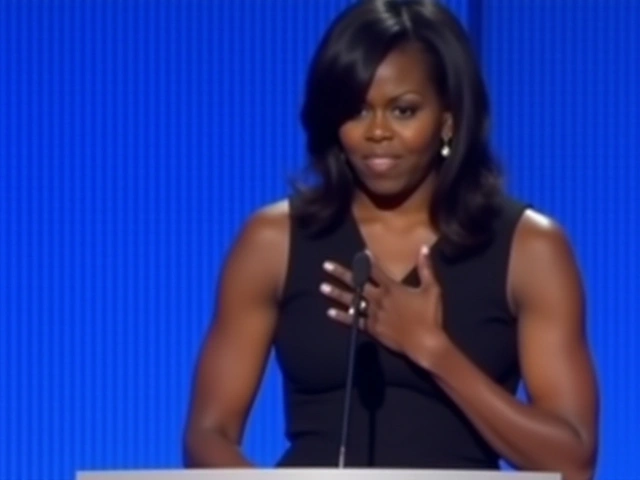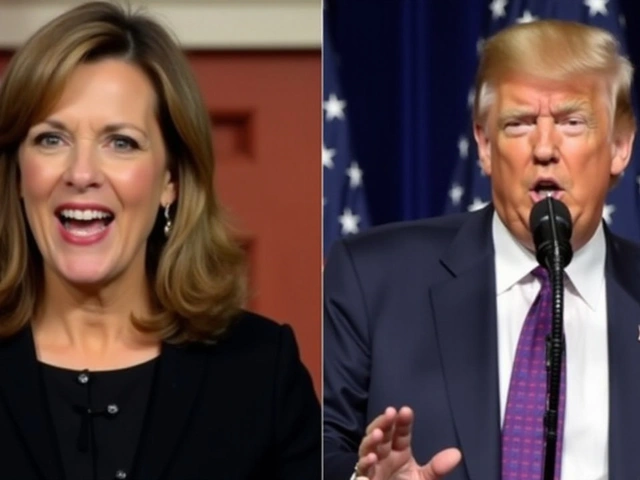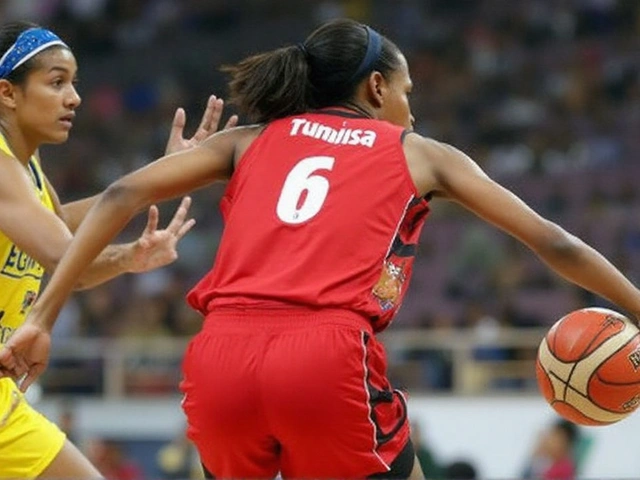
Michelle Obama's DNC Speech Elevates Kamala Harris's Campaign
The 2024 Democratic National Convention witnessed a high point when former First Lady Michelle Obama delivered an emphatic speech that deeply resonated with audiences across the political spectrum. Her address was a significant endorsement for Vice President Kamala Harris, drawing attention to Harris's impressive credentials and unwavering character. This moment was pivotal for the Democratic Party as it highlighted a unified front in contrast to the often divisive political climate leading up to the 2024 presidential election.
Obama's address was poignant and carefully crafted, striking a balance between praising Harris's qualifications and addressing the broader theme of unity and inclusion. She focused on Harris's extensive experience, emphasizing her tenure as a Senator and Attorney General, and positioned her as a tireless advocate for justice and equality. These points were strategically highlighted to showcase Harris as a leader capable of steering the nation towards a more inclusive future.
Contrasting with Trump's Divisive Tactics
As Michelle Obama elevated Kamala Harris's campaign, she implicitly contrasted her positive message with the divisive rhetoric often employed by former President Donald Trump. In recent appearances, Trump had attempted to cast doubts on Harris's racial identity and questioned her qualifications. These remarks, made during his address to the National Association of Black Journalists, were widely criticized for their underlying racial connotations and seen as an effort to undermine Harris's credibility.
However, Trump's attacks appeared to fall flat as they were met with backlash from various quarters, including members of his own party. Critics argued that such rhetoric only served to deepen the political divide and distract from the pressing issues facing the nation. By choosing to focus on character assassination rather than policy and performance, Trump's approach was in stark contrast to the Democratic Party's emphasis on unity and respectful political discourse.
A Boost in Harris's Campaign Traction
Following the convention and Michelle Obama's powerful speech, Kamala Harris's campaign saw a notable surge in momentum. The endorsement from a figure as respected and admired as Obama lent significant credibility to Harris's bid for the presidency. Supporters applauded Obama's heartfelt words, which not only highlighted Harris's achievements but also underscored the importance of maintaining a dignified and collaborative approach to politics.
Obama’s speech was not just a personal endorsement; it was a rallying call for Democrats to come together and support Harris as the party's nominee. She touched on the themes of hope and resilience, urging the electorate to stay engaged and to vote for a future built on respect and inclusivity. Her words aimed to galvanize the Democratic base while appealing to undecided voters who yearn for a return to civility in political discourse.
The Importance of Unity within the Democratic Party
The convention highlighted an essential element for the Democrats moving forward—unity. With multiple factions within the party, it was crucial to present a cohesive front as they faced the upcoming election. Michelle Obama's endorsement of Kamala Harris served to bridge any gaps within the party, encouraging constituents to rally behind Harris's candidacy. Her speech advocated for a collective effort to overcome the divisive tactics frequently seen in contemporary politics.
The unity theme extended beyond just politics. Obama made a compelling case for national unity, pointing out that the country has always been strongest when it embraces its diversity and works together towards common goals. This narrative was an essential counterpoint to the increasingly polarized environment, providing an alternative vision of what American political life could look like.
Setting the Tone for the 2024 Presidential Campaign
The Democratic National Convention and Michelle Obama’s compelling speech marked a significant moment in the 2024 presidential campaign. With her endorsement, Harris firmly established herself as the Democratic nominee, setting a positive and hopeful tone for her campaign moving forward. The speech not only boosted Harris's profile but also served as a testament to the values that the party aims to uphold—unity, respect, and inclusivity.
The event underscored the importance of moving past the politics of division and working towards a more constructive and cooperative political environment. Michelle Obama's words provided a stark reminder of the stakes involved in the upcoming election and the need for leaders who prioritize the well-being of all citizens over partisan divides. Her advocacy for Kamala Harris was not just about supporting a candidate; it was about endorsing a vision for the future of America.
As the election season progresses, the influence of Obama’s speech is likely to be felt. It has set a precedent for the kind of discourse that voters can expect from Harris’s campaign—one that centers on unity, strength in diversity, and a commitment to respectful political engagement. By steering the conversation towards these themes, the Democratic Party hopes to capture the electorate’s trust and enthusiasm, paving the way for a successful presidential campaign.







Yo, that speech was fire. Michelle really set the vibe for unity, and Harris looks solid now. It's cool seeing positive energy over the usual smack talk. Guess the DNC just leveled up.
Honestly, the rhetorical architecture of Ms. Obama’s address functioned as a masterclass in political dramaturgy, weaving together threads of historical resonance, policy nuance, and emotive storytelling. She invoked the lexicon of collective struggle while seamlessly aligning it with Vice‑President Harris’s portfolio of justice‑oriented initiatives. The cadence of her oration, punctuated by moments of strategic pause, served to amplify the symbolic capital of both figures within the Democratic apparatus. Moreover, her deployment of inclusive language cultivated a narrative where diversity is not merely tolerated but celebrated as the engine of national progress. By foregrounding Harris’s legislative record, she transformed abstract virtues into concrete milestones, thereby reinforcing the candidate’s credibility among skeptical swing voters. Simultaneously, she sidestepped the binary of partisan antagonism, opting instead for a unifying anthem that appeals to the electorate’s yearning for civility. The speech’s intertextual references to past civil‑rights milestones underscored a continuity of purpose that resonates across generational lines. In doing so, she skillfully positioned Harris as the contemporary steward of that legacy, bridging the gap between historic struggle and future aspiration. The rhetorical framing also incorporated subtle repudiation of divisive tactics, without resorting to direct ad hominem attacks, thereby maintaining a high moral ground. As the applause echoed through the hall, the palpable shift in momentum was evident; poll numbers would later reflect the surge. This symbiotic boost-where an iconic endorsement amplifies a candidate’s brand equity-illustrates the power of narrative alignment in modern campaign strategy. The careful calibration of tone, from measured optimism to fervent hope, ensured that the message resonated with both progressive bastions and moderate enclaves. Her articulation of unity functioned as a counterweight to the prevailing climate of polarization, offering a vision of collaborative governance. There’s an undeniable strategic calculus at play: by cementing Harris’s image as the embodiment of inclusive leadership, Michelle Obama amplified the ticket’s overall appeal. The speech, therefore, was not merely a feel‑good moment but a calculated maneuver to reframe the political discourse ahead of the 2024 election cycle. In the grand tapestry of electoral politics, this moment will likely be cited as a pivotal inflection point where rhetoric translated into tangible electoral capital.
The endorsement feels like a calculated political move rather than genuine support.
This is just another elite puppet show!!! They're trying to distract us from the real agenda!!! Wake up, folks!!! The media’s feeding us a narrative engineered to keep the power structures intact!!!
From a philosophical standpoint, the appeal to unity taps into a deep human desire for communal belonging. When leaders invoke collective identity, they are invoking an existential anchor that transcends policy minutiae. Yet, we must ask whether such rhetoric is merely a veneer masking underlying structural tensions. The real test lies in translating these lofty ideals into concrete institutional reforms. If the discourse remains at the level of inspirational platitudes, it risks becoming an echo chamber. However, should policymakers operationalize this unity through equitable legislation, the societal impact could be profound. In any case, the conversation sparked by the speech invites us to reflect on the very nature of democratic solidarity.
While I commend the eloquence of the address, it is incumbent upon us to scrutinize its substantive implications. The articulation of unity, though admirable, must be substantiated by measurable policy commitments. In this vein, a comprehensive plan outlining actionable steps would lend credence to the proclaimed ideals. Moreover, the emphasis on inclusivity should be reflected in concrete outreach initiatives across diverse constituencies. It is through such diligent execution that rhetoric may transition into lasting societal benefit.